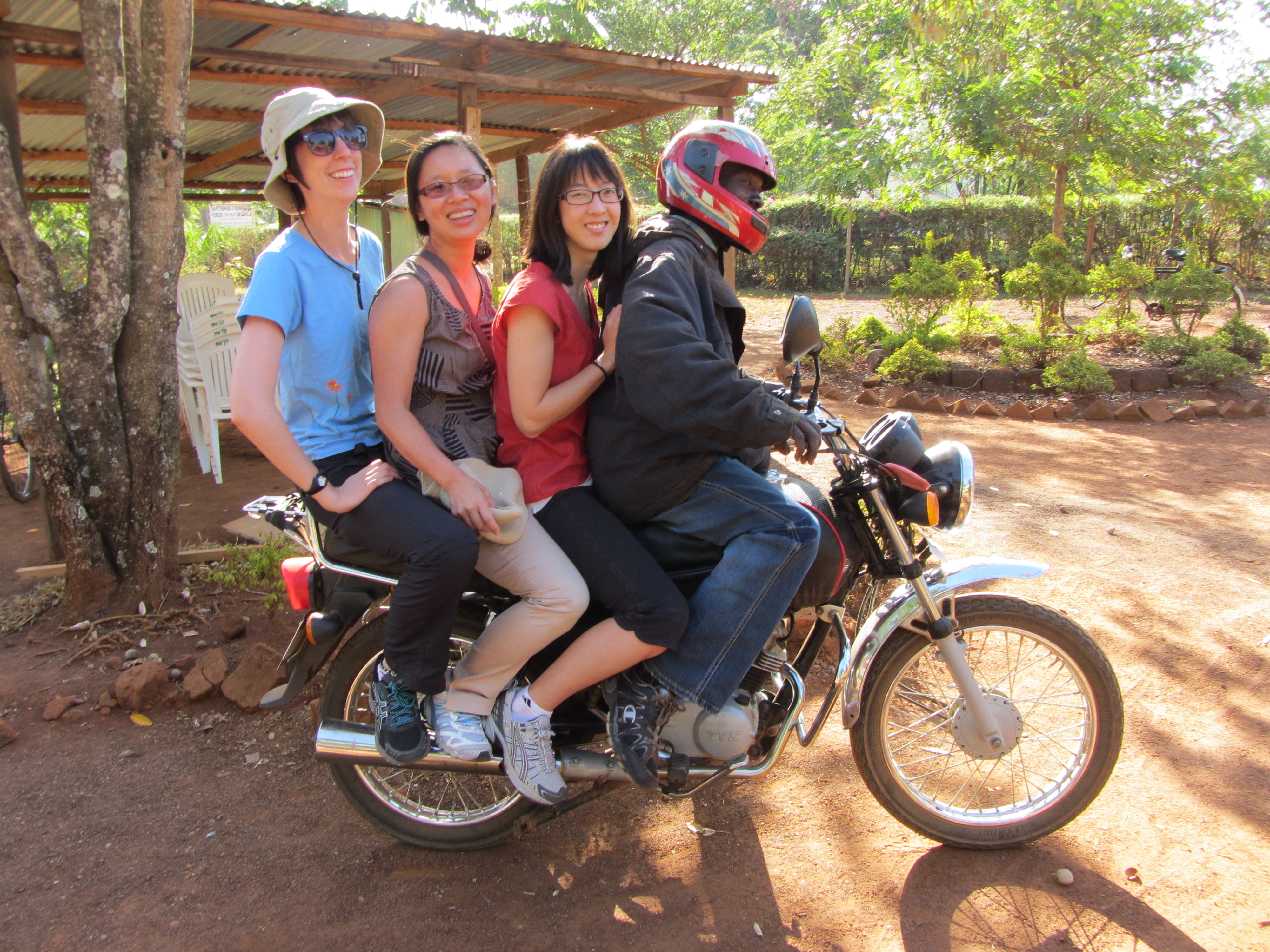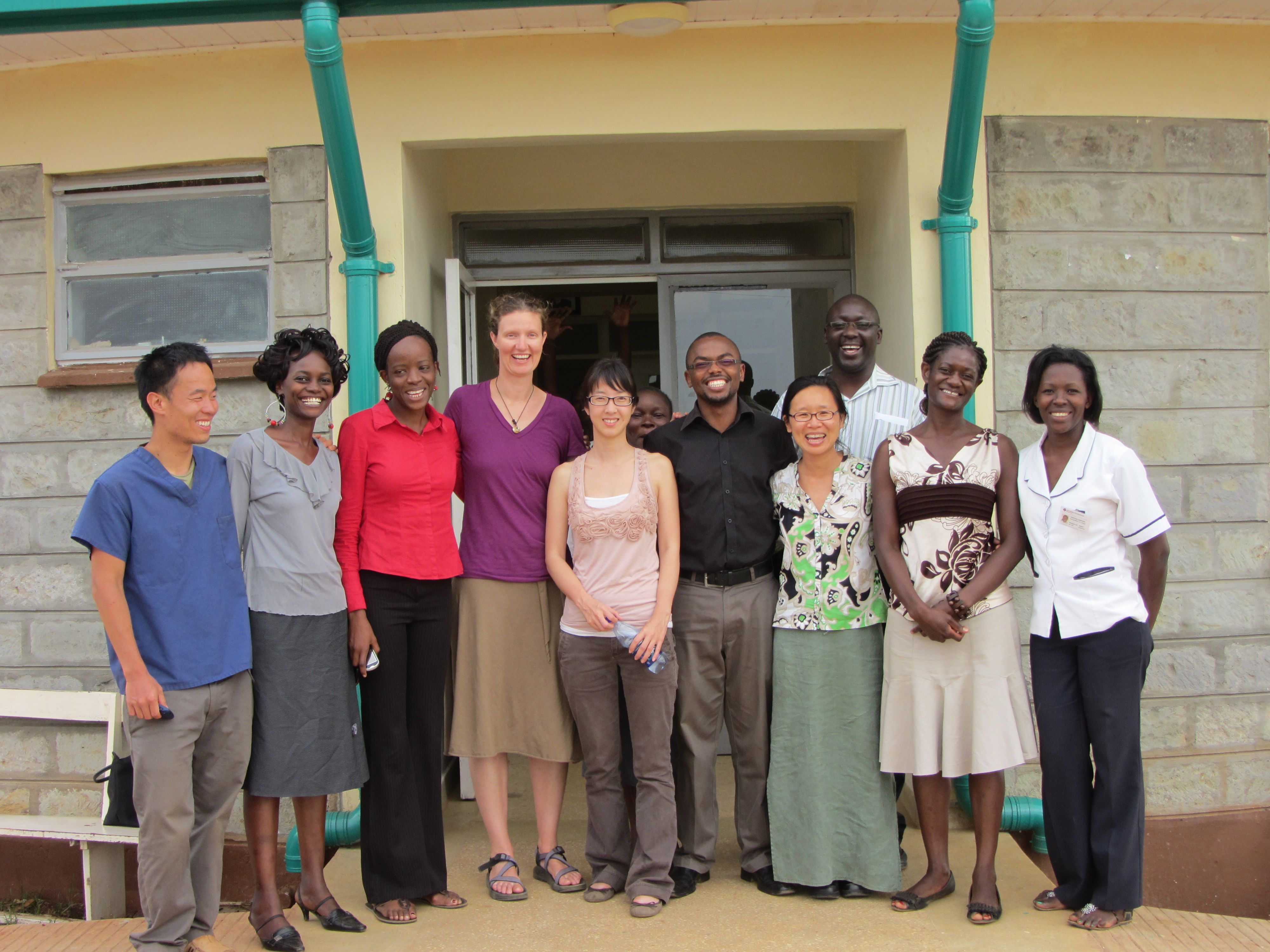Written by Deepika Parmar, MD, PGY-2 at Kaiser Permanente Oakland Pediatrics Program while on Global Health…
Matibabu Experience, February 2012
Posted by Anne Goh, MD (a third year Internal resident from Kaiser Permanente San Francisco while serving a global health elective in Kenya with The Tiba Foundation/The Matibabu Foundation).
I spent 14 days including travel time from San Francisco to Ukwala, Kenya in February 2012 with the Matibabu Foundation as part of my global health elective. Even though the time was short, I am so happy I took this opportunity to experience healthcare in a resource limited setting in Kenya before the end of my Internal Medicine Residency training.
Coming back to do a second residency in Medicine in the United States after a long spell away in research and volunteering, I was drawn to the tremendous advances made in the world of HIV medicine as well as in infectious diseases. Working in the HIV module as part of my ambulatory care experience for the past 2-3 years in San Francisco, my interest in healthcare disparities while working on my Public Health degree in Berkeley, as well as my previous experience working in a refugee camp hospital in Thailand and Burma, made me choose Matibabu Foundation as the location for my global health elective. I was keen to experience healthcare delivery in a developing country especially in a region which has the highest HIV/AIDS and malaria as well as tuberculosis prevalence in Kenya.
Matibabu Foundation’s work is based in Ugenya district in Western Kenya. It runs a community clinic at Nzaio and the newly opened Matibabu Hospital in Ukwala. It also manages and supports the Comprehensive Care Centers for HIV/AIDS in Ugenya district with its main clinic at the Ukwala Health Center (Ministry of Health run clinic). The foundation manages about 700 community health workers who are volunteers from the community, who provide education about sanitation, water, preventive health, bednets, nutritional support and who alerts the foundation of individuals who may need more assistance.
This is my first trip to Sub-Saharan Africa. I was privileged enough to have one of my friends and Kaiser San Francisco Hospitalist, Dr. Melody Choong share on this journey as my supervising attending. We stayed at the Camunya Hotel in Ugunja which was 13.5 km from Ukwala, which took us about 30-45 minutes by car. The road is unpaved with many pot-holes, with a narrow bridge across Nzaio River. We spent a day at each of the facilities seeing patients. The clinical officers helped us out tremendously, providing translation for our patients who only spoke in Swahilli or Luo. It was amazing to see how great their diagnostic skills are, having to rely on history as well as physical exam solely to make a diagnosis and modifying treatment plans according to what medications are available or affordable for the patients.
We were warmly welcomed by the patients and the clinical officers at the Comprehensive Care Center for HIV/AIDS. Patients, the majority were women and children, sit patiently waiting their turn to be seen. Part of the PEPFAR/ICAP programs, HIV care including consultation, lab tests and ARV as well as TB medications are provided free of charge. Most of the patients are given monthly supplies of their ARVs and they are followed closely by the center. It was disheartening to see that many men with HIV remain untreated because of a lack of understanding and acceptance of the disease and treatment. There were also cases of women who were prohibited by their husbands to seek treatment. Because of the high rate of malaria in this region, more than half of the patients who come for their routine follow-up also get tested for malaria if they have any symptoms suspicious for malaria. We also diagnosed several cases of possible tuberculosis during our one day at the clinic.
We spent a morning with one of the community health workers, who took us on a bodaboda (there were four of us on 1 motorcycle) to visit the nearby villages. We walked to visit several homes. What struck me the most during our walk was the many empty houses where entire families have perished with the HIV/AIDS epidemic. Some homes which we visited, the children including babies were left on their own in front of their houses while the mothers traveled to carry water. We learned that the Luo people look after their extended families: there was an elderly woman who was unable to walk because of disabling arthritis and back problems, whose children are gone but the rest of the village helps out by carrying water for her, providing her with food and even cigarettes! We also met an elderly man with rheumatoid arthritis and a previous stroke who was given a wheelchair by Matibabu. His son will be one of the first from the village to enter University. He makes bricks from mud with his father to save money for school and at the same time is working on a chicken egg farm business to help support his family while he is away at school. His goal is to study economics and use it to help his village develop and improve the lives of everyone here. It was inspirational to see how Matibabu’s outreach is influential in changing the lives of an individual, family and community.
I’m going to write about several interesting cases I saw during my time in Ukwala which highlights the needs and challenges facing the healthcare teams here.
A 25-year old man who was semi-comatose, brought in on the back of a motorcycle taxi (bodaboda) sandwiched by his brother and the driver, h/o rapidly progressing deterioration in his mental status, headaches and fevers, several months weight loss and possible history of HIV not on treatment. He looked severely emaciated with bitemporal wasting, was not able to follow commands, not able to verbalize, eyes opened spontaneously, some neck stiffness, no other focal neurological signs. The working diagnosis was meningitis, possible cryptococcal meningitis. He was ruled out for malaria. The dilemma was not being able to examine the CSF as the lab was not equipped, no CT scan for neuroimaging to rule out a mass lesion, not being able to confirm his HIV status as there was a HIV diagnostic test crisis in Kenya (with recall of one of the rapid HIV test kits), fluconazole IV not available at Matibabu Hospital, amphotericin B unavailable, the closest facility with this medicine is at Siaya Hospital which is at least 1.5 to 2 hours away and the prohibitive cost of this medicine. He was given ceftriaxone IV and transferred to Ukwala Health Center where he expired after several hours.
A 17-year old woman presented with shortness of breath, fever, chest pain typical for pericarditis and arthralgias. She had a sore throat 2 weeks ago. On exam, she had a temp of 102F, tachycardia, tachypneic, JVP not elevated, MR and AR murmurs all over precordium radiating to her axilla and back/scapula areas with mild ankle edema. After looking up quickly in Pocket Medicine, we diagnosed her with acute rheumatic fever. Having so much reliance on our lab/radiology/ ECG/Echo support, we were suddenly at a loss as to what to do next to help confirm our suspicion since Matibabu hospital (or the rest of Ukwala) does not have access to X-ray, ECG machine or a rapid strep test or echocardiography (electricity is still unavailable, only 1-2 hours each day). We settled on empirically treating her with aspirin and penicillin, low dose lasix and have her return to the clinic in 2 days for follow-up.
The highlight of my trip is the warmness, generosity and kindness of all the people we came in contact with in Kenya. The smiles on their faces, the friendly greetings as well as the love and concern for others touched me tremendously during my time here. It is truly remarkable to see how Matibabu has changed so many individual lives, touched families and empowered communities in the Ugenya district of Western Kenya, through its partnership with the indigenous communities, Kenya Ministry of Health (local clinic and district hospitals), different sponsorships/programs from the United States (PEPFAR, ICAP). This goes way beyond the basic delivery of healthcare. It provides a foundation for individual and organizational sustainability through its wide-ranging community education and support programs like school outreach, sewing, beading and computing classes for the youth, many different agricultural programs and many other projects and activities.


Its rilly encouraging to us the staff of matibabu to read this.may i also thank all of you for the services you offered,hope you will be back again.
Good to see a fellow Tasmania alumni doing her bit to improve the world.